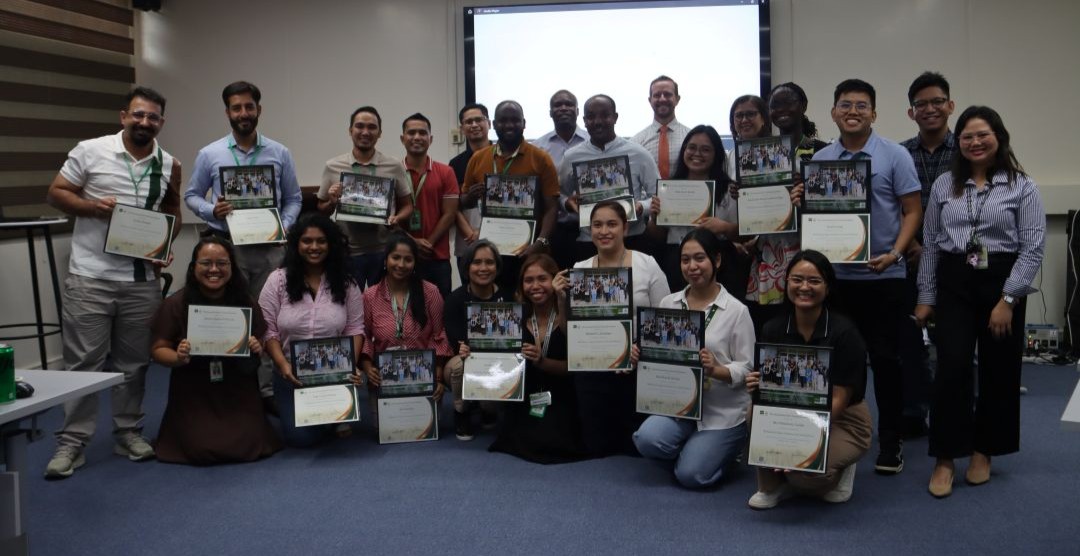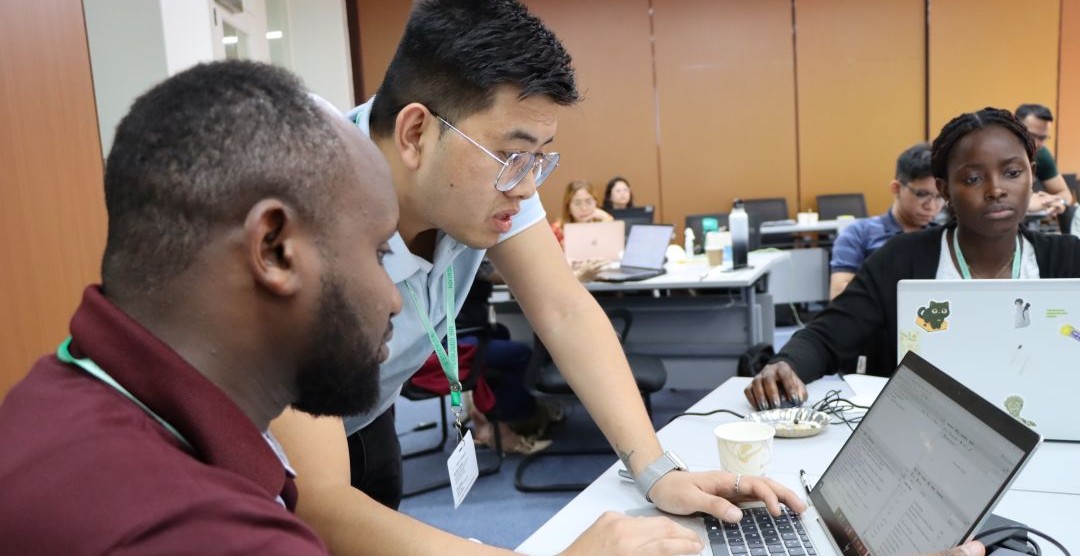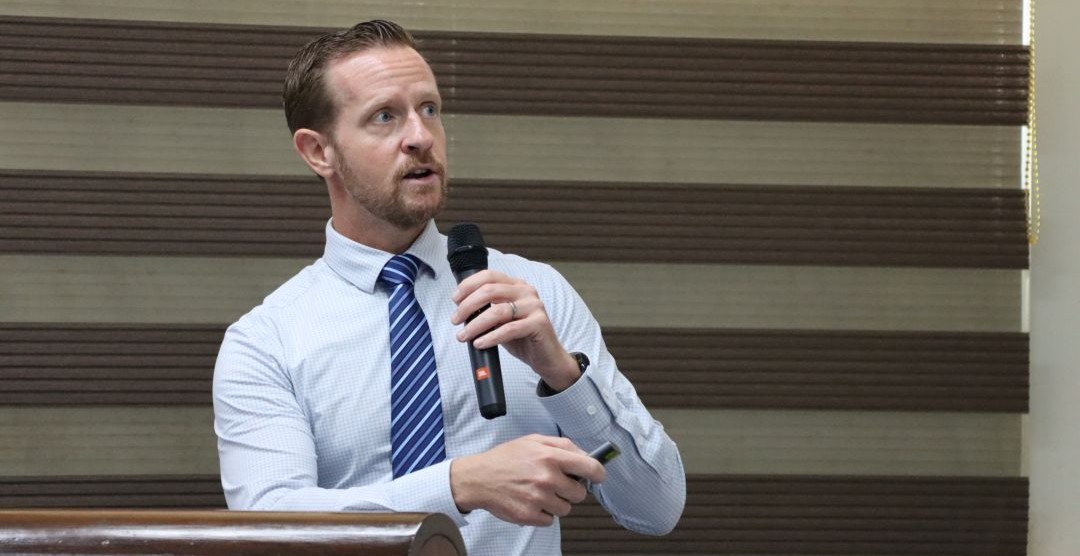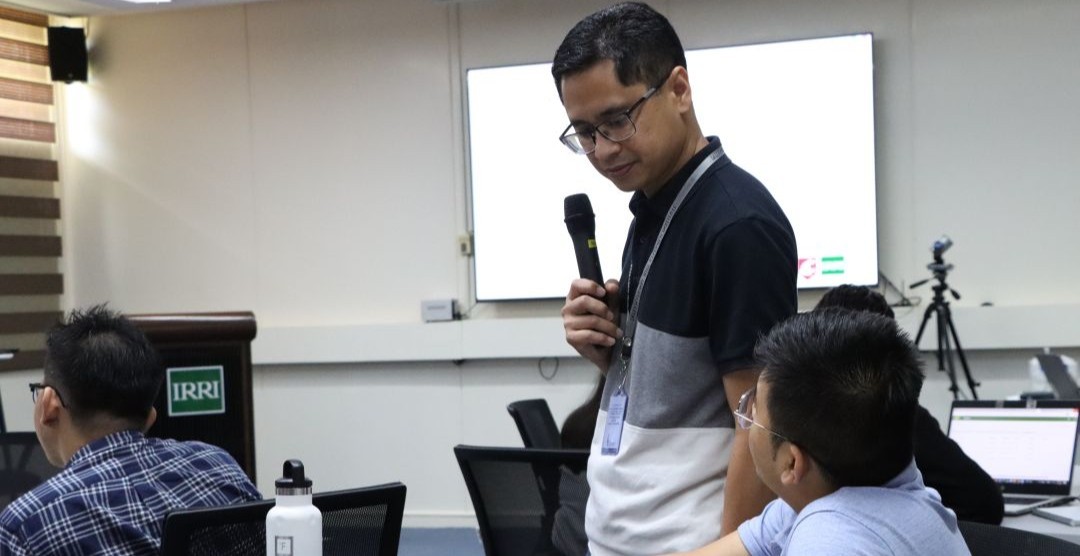Los Baños, Laguna, Philippines (11 July 2025) — Measurable impacts are essential in policy and program development to achieve transparency and accountability. Impact evaluation plays a crucial role in determining whether a particular intervention has made a difference.
This was the core focus of IRRI’s Workshop on Impact Evaluation and Causal Inference held from 8 to 11 July 2025 in IRRI’s Headquarters. This four-day training equipped participants with tools to assess the effectiveness of interventions. Impact evaluation focuses not only on outcomes but also on attribution, whether the observed changes in target key indicators can be confidently linked to the intervention itself. This approach helps guide decisions on which programs should be scaled, redesigned, or discontinued. The course addressed a key challenge faced by development professionals: how to generate credible evidence about what works, why it works, and at what cost.





